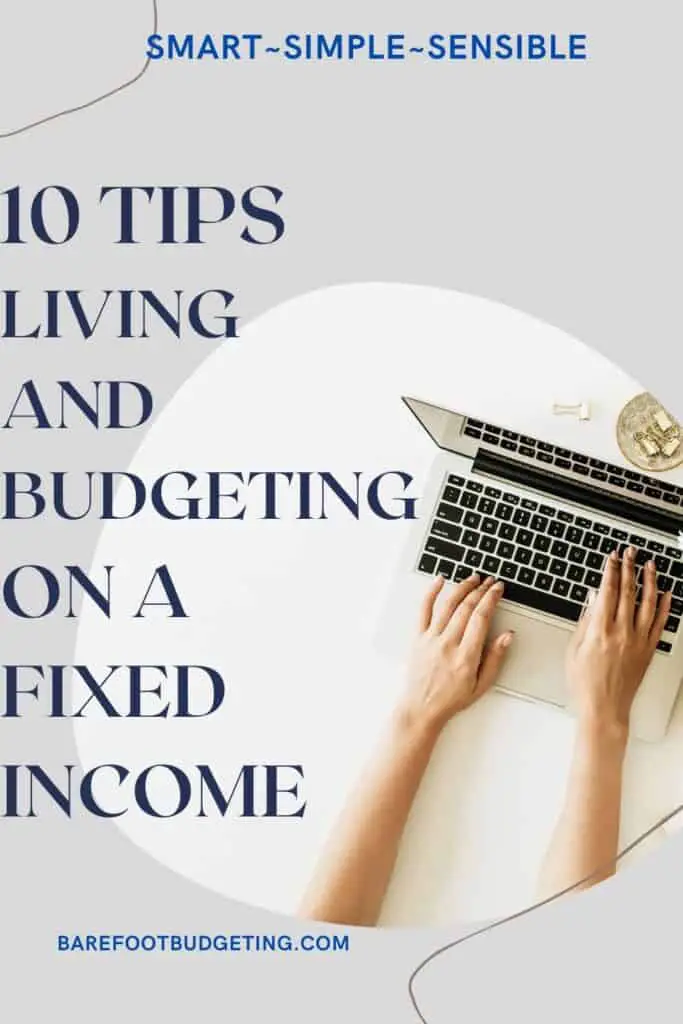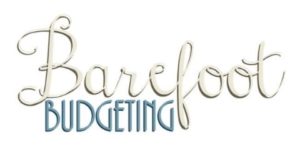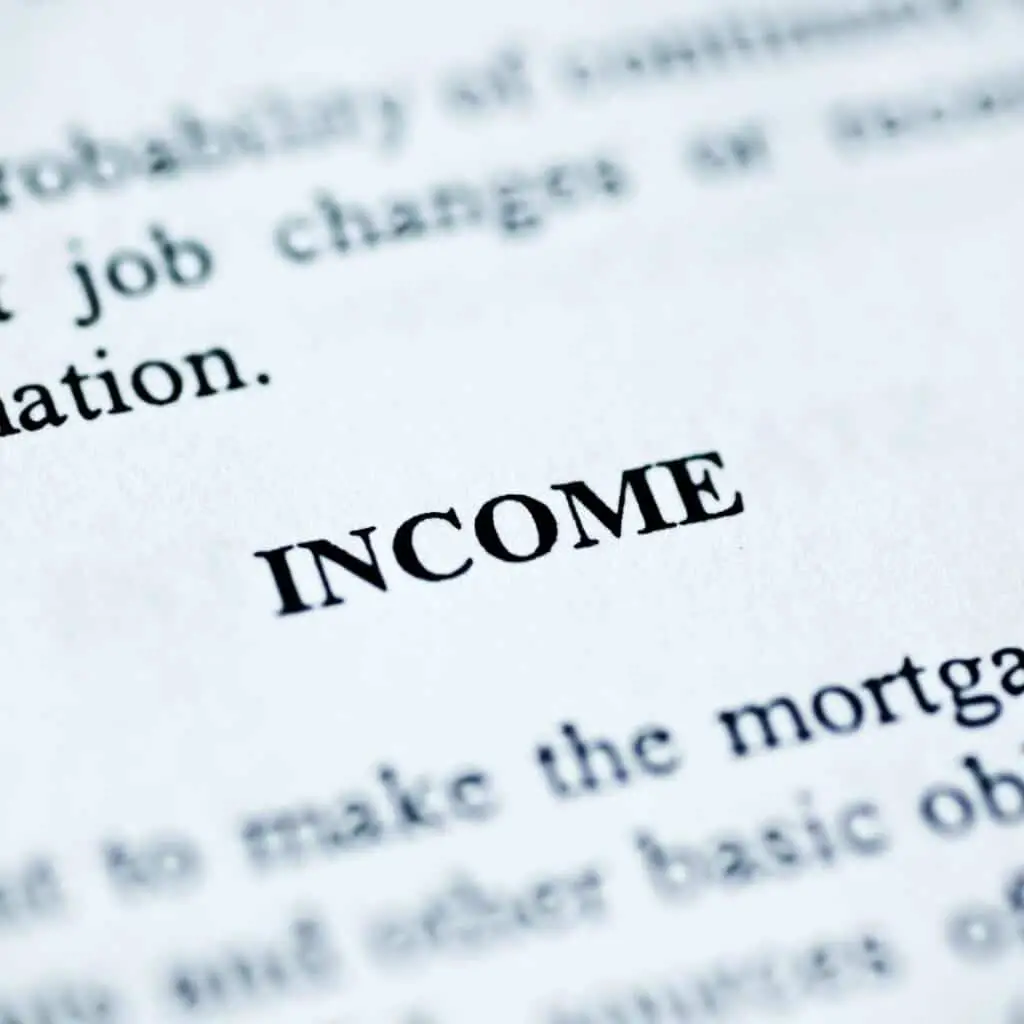*This post may contain affiliate links. As an Amazon Associate we earn from qualifying purchases.
10 Tips for Living & Budgeting on a Fixed Income
What if you’re stuck with a fixed income? Budgeting on a fixed income can have its own challenges. It can be hard to figure out how to budget on a fixed income with all that’s already going on in your life. Let’s face it, habits can be hard to change and change isn’t as easy for all of us. Living on a lower fixed income can feel like trying to fit a square peg into a round hole. I hear ya! Let’s dig in and find some ways to change the challenges into wins.
You need to have a plan for budgeting. But there’s no way that you can predict the future. How will you know how much money is enough?
We’ve got some ideas! This article shows you how to create an effective budget, and offers advice on working towards financial independence so that when it comes to unforeseen circumstances or for retirement, there won’t be any guessing games about whether or not it’ll work out.
Before we go into budgeting on a fixed income, we’ll review what defines a fixed income. We’ll also cover:
- Fixed costs
- Variable costs
- Budgeting for living on a fixed income
- Saving for the emergency fund while living and budgeting on a fixed income
- Tips for living on a fixed income
- and more
What Is Considered A Fixed Income?
Fixed income typically refers to those types of investments that pay investors fixed interest or dividend payments until the maturity date. Once matured, investors are paid back the principal amount they invested. Bonds are types of fixed-income products.
Variable income would be investments that don’t return ‘fixed’ amounts, but monies based on the value of the shares at the time of payout.
Other types of income commonly referred to as fixed income are:
- Social Security
- Disability
- Government Assistance -Welfare or temporary assistance for needy families
- Some refer to unemployment benefits as a temporary type of fixed income.
Regardless of the definition, reason, or the length of time you are receiving a fixed income, you are living on equal payments monthly and need to know how to budget on a fixed income.
What Is Considered A Variable Income?
In the Finance sector, you may often hear of a variable income from stocks or other investments that are market driven, not ‘fixed’.
The simple definition is a variable income is any earned or unearned income that varies and cannot be clearly counted on as the same every week, month, year. A side-gig or job where there is not salaried and offers overtime or incentives is a variable income.
What Is Considered a Fixed Expense?
A fixed expense is an expense/ bill that is the same month to month (with small variations).
- Mortgage(s), Rent, Lease
- Property taxes
- Home insurance
- Condo fee, Home Association fee
- Housing/ rental insurance
- Utilities such as ectricity, water, etc.
- Car payment; loan or lease.
- Vehicle insurance
- Insurance: Health, Life, (not auto or home)
- Bank fees
What Is Considered a Variable Expense?
A variable expense is an expense you incur somewhat regularly yet the price can fluctuate from week/month to week/month. This will be a larger focus when budgeting on a fixed income.
- Groceries
- Clothing
- Health expenses
- Children’s activities, school fees, and expenses
- Pet needs
- Vehicle maintenance, gas, car washes, membership such as AAA
- The cost of household maintenance. Painting, Lawncare such as painting or yard care
- Clothing
- Other such as entertainment or dining out gifts
How Do You Live On A Fixed Income?
Some would tell you a fixed income at least has consistency and not the unknown of a variable income. Most anyone would agree.
The bottom line is your expenses cannot exceed your income. If your expenses are higher you are looking for trouble. Get it under wraps as soon as possible. You’ll want to really go deep with budgeting on a fixed income.
The correct and better approach is your income should always exceed your expenses to allow for saving (for emergencies and non-essential things like vacations, parties, gifts, the hot tub you want).
Simple math, ,right?
Rule #1, Budgeting On A Fixed Income Is A Must
There’s no two ways about it. A Budget is the only way to go. You may have a budget without even realizing. You may have it so deeply rooted in you that yourself (savings) gets paid first, then necessities (essentials), then
Know Where Every Dollar Goes
Knowing where you’re spending is empowering when you are budgeting on a fixed income. Remember that saying “knowledge is power”? In order to understand your spending trends and habits, you want to first write down where every single dollar got spent. The easiest way to do this is to start with bank statements, online payment services like PayPal. Fill in the gaps with cash purchases by looking at receipts or oh, that fabulous memory of yours!
How To Make A Budget On A Fixed Income
Budgeting and living on a fixed income isn’t much different than budgeting in most other circumstances. You must:
- Calculate all your income
- What are your necessities / fixed expenses, write them down
- List your variable expenses at your best estimate, write these down also
- Review and make adjustments to fixed and variable expenses
Aim for a 25% or higher reduction in variable expenses at first review.
How To Determine Variable Vs Fixed Expenses
Fixed expenses, similar to fixed income is a consistent amount you owe each week/month/quarter/year.
Variable being similar to a ‘side gig’ are expenses you may anticipate however cannot put an exact number to each occurance. Things like car repairs. You may know you will have some kind of (fixed) maintenance but repair from an unexpected mechanical issue would be a variable expense for most.
Tips For Living & Budgeting On A Fixed Income
Once you’ve determined your fixed expenses, take a closer look at your variable expenses and brainstorm all the reasonable potential expenses that could come up.
The idea is to categorize these expenses as best as possible and start budgeting for them in anticipation of possible ‘unplanned’ expenses. Trying to avoid your emergency fund.
Put aside towards car repair, clothing, pet emergencies, children’s field trips, day trips, gifts. Doing these things allows for a buffer in your budget and allows you the comfort of knowing you can pay for these things if / when they (and they do) come up.
Google has some fabulous free tools. Use their google sheets templates for monthly budget and annual budget. They’ve pre-filled out a lot for you making it much easier.
In addition to their free tools, they also have this great tutorial on how to set up your own custom budget sheet. This is GREAT stuff plus they give you a sheet to make a copy of!!
Pay Cash For Everything, Eliminate Credit Card Debt
Time to get serious about ways to make this happen. STOP using your credit cards. Pay in full for everything. No more, charge now, pay later. Eliminating credit card debt is essential to having a better grip on your cash flow. If you are going to be living on a fixed income that means creating fixed expenses, credit cards are too tempting.
Keep a credit card tucked away for true emergencies. Not for dinner out, drinks with friends, or that must-have trendy new pair of shoes. You can set up budget categories for that.
HELPFUL ARTICLE: 50+ BUDGET CATEGORIES
See If You Can Lower Your Housing Expenses
Looking into things that can lower housing expenses can be tricky. Evaluate with your bank the pros and cons of re-financing if you have a mortgage. If you rent, look around to see if there are other places nearby or closer to your friends and family that are more affordable, lower rental rates.
We will chat more about lowering household expenses under tips for living on a fixed income further down. These will help reduce household expenses not just ‘housing’ expenses.
Assess Your Transportation Need Vs Expense
Evaluate and Assess your actual ‘needs’ for transportation. Most American families own 2 or more cars. While this may be necessary for some, most likely if you are not working this isn’t really a necessity. Take a hard look at if this is truly needed in your home and what it means to your fixed expenses vs how much you would save with fewer vehicles.
About 24% of American households own 3 or more cars or other light vehicles. This includes 3.4% that own more than 5 vehicles. 33.5% own 1 car, 33.1% own 2, while there are also close to 9% of households that don’t own even a single car.
source: PolicyAdvice.net
Be honest with yourself here. If you are living with two cars and on a disability income or retirement or other fixed income, do you really need two cars? We’re not asking if you find it more convenient to have two cars (or more) but do you ‘need’? Proper planning and sharing one car could take some adjustment but reap huge financial savings.
Have an Energy Audit With Your Electric Company
Call your local utility company or check the bottom of your next bill. Many of them offer free energy audits in person and even virtual. An energy audit could offer you significant savings over the course of a year in your daily usage.
They offer stuff like replacing every single lightbulb in your home with energy-efficient and long-lasting bulbs, Also items like updated surge protectors to help you shut off energy-sucking items like TVs when not in use. They also offer not only a list of great easy to do tips but resources for low-priced insulation, window replacement, etc.
Review Your Phone Plan
Shop around. New competitive plans pop up daily. Don’t be afraid to change when your contract is up. Ask friends and family for references, they may also get a referral bonus! Many of the ‘smaller’ lesser-used providers are using the same cell towers as the big companies, thus your service is pretty danged comparable and sometimes better! Review your plan regularly. You can increase or decrease data without penalty with most providers.
Not a big talker or seldom use the smartphone features on your phone? A pre-paid plan may be the best option for you. These are popular and used more often than you think for cost savings.
Cut The Cable Channels
The cable companies seem to have a stranglehold on so many of us. No better time to stop now that we have smart TVs. Knock that bill down to the basic plan and stream Free YouTube DIY videos, Educational clips, funny outtakes. If you have extra discretionary money in your budget pick ‘one’ premium channel to stream. You can always cancel it if you need to later.
Grocery Savings Galore
Grocery shopping on a fixed income can be tough. However, there are some tips to make your dollar stretch and get you more for your money!
It’s easy to become discouraged when paying such close attention to every penny spent – but just remember that it pays off in the end once those pennies add up into dollars saved over time.
- Back to basics. Make a meal plan. Write down your weekly menu based on what’s on sale only. Shop your pantry and make use of all leftovers.
- Clip ‘all’ the coupons to your phone or cut coupons, whichever tickles your fancy. Combining coupons with a sale item increases your savings.
- Buy day-old bread and freeze.
- Buy dinged and dented produce and put in produce saving green bags.
- In-season produce can be preserved by freezing and other techniques.
- Shop the clearance aisle and mark-downs throughout.
- Got Milk? You may find this less expensive elsewhere like a pharmacy
- High protein snacks will save you money in the long run, they keep you full longer
- Use apps to get cashback on groceries like Ibotta.
Combine or Share Resources With Family And Friends
Seldom used these days. Back in your grand parents day, maybe even great grandparents time the idea of family and neighbors helping one another with daily needs was common place.
- Need a larger vehicle for a once or twice a year DIY home project? Ask a friend to help you out or borrow their truck.
- Need an ingredient for a one-time recipe, ask a friend. No need to make a purchase for a tablespoon of spices.
- Share a meal once a week at your home or make extra and freeze or drop it off. Trade babysitting days.
- Go shopping together for groceries, saving gas, and car insurance.
- Running out to pharmacy? Ask neighbors if they need anything while you’re out and see if they want to do ‘errands’ sharing with you.
Borrowing, sharing, exchanging, even bartering for goods and services is as old as this country. No better time to refresh an old tradition when budgeting on a fixed income. You’re not just helping your budget but you’re helping a neighbor, friend and family too. Everyone wins!
More Ideas For Living On A Fixed Income Successfully
There are many ways to make money on a fixed income budget. You can even start small!
We’ll give you some ideas for how to earn extra cash without going into debt or sacrificing your financial stability in the process. And if some people find it impossible, that doesn’t mean there aren’t any options at all. Starting out with something as simple and manageable as $5 per week could be an option worth considering without jeopardizing your present income.
Must Read: How to Create Printables
Earn Extra Income When You Can
Think about it, $5 x 52 weeks = $260. That could make a nice contribution to a retirement investment plan. Be sure to check the terms of your fixed income and what you are allowed to make and if any penalties or disqualifications. Short term, low payouts aren’t worth jeopardizing your income. Weigh out the pros and cons in your personal situation.
A retired neighbor is an avid gardener. She has an annual plant sale. She runs it on weekends only throughout the month of May. This one month of income allows her to purchase Christmas gifts for all her grandchildren. I was so inspired by her story that I wrote an article on having a plant sale of your own!
Retired teachers are making money creating printable worksheets and selling online through Teachers Pay Teachers and Etsy. You can learn how to create printables pretty easily and free online using Canva.
Speaking of Etsy, are you a crafer? Well, host our crafts on Etsy or even on a free Facebook page for sale. Did you know you can sell much more than crafts on Etsy these days?
Great Read: Easy Guide to Set Up and Sell on Etsy
Dog walking, babysitting, lawn mowing. The possibilities can be many or limited to the one or few you truly enjoy doing.
Yard Sale! Cleaning out that extra room to rent or are you downsizing? Maybe just de-cluttering. Before you hit the trash, ask yourself if someone else could use this and list with an online yard sale on facebook or have one ‘old school’ yard sale, great chance to socialize or combine with a neighbors yard sale.
Do you have a skill from past jobs, you want to stay current with work experience, try Fiverr. Are you great at putting together Ikea furniture, handyman work? There are a ton of online micro-task sites out there.
Do some research and see where you best fit in. You take on only what you are able to and this provides a small or large cash flow depending on your availability. Word of mouth is great, spread the word to friends and family.
You get the idea, your opportunities are only limited by your mindset. There are options out there for all kinds of skills and experiences. Ask around, there are bound to be friends with great tips on how to earn a few extra dollars while living on a fixed income.
Build An Emergency Fund
Even if you are living on a fixed income you really can’t give me 5 good reasons, or one for that matter for not having an emergency fund. Call it a rainy day fund, your stash, whatever you want but you must have a fund to have your back when something unforeseen happens and yes, it eventually happens to all of us. Think of this as your guardian angel fund.
Yup, always be sure you are paying into your savings aka your emergency fund is a priority with your budgeting on a fixed income plan.
Get A One Month Cushion For You Bills
(Try tightening your budget temporarily 60-90 days, lowering expense to build cushion in checking account–different from emergency fund)
You want to also build a cushion into your checking account (your working money, the money you use to pay bills). Try adding an extra 5% or rounding ‘up’ for a couple of months. It adds up quickly and you’ll be thankful it’s there if you need it in a pinch. This may not be income or expense but it’s just as important when budgeting on a fixed income.
Try different ways like a no spend challenges to help cut costs. This can be fun and a great way to learn something new or catch up with friends and family.
I can sit here and give you all the tips for living on a fixed income as well as how to step by step budget on a fixed income. The fact is that you need to do the work. It’s a matter of setting your mind to making changes in the way you treat your money, your spending habits. You also need to be willing to consider small income earnings when this makes sense for your budget. Life is short and money is tight, make it work for you not the other way around.
Conclusion:
If you are living on a fixed income and you can’t cover your monthly expenses, apply for all local or governmental assistance that you can qualify for. There are agencies that not only assist with food, but utilities, medications, and even transportation depending on where you live. If boosting your income isn’t an option, look to lowering any expenses you can.




